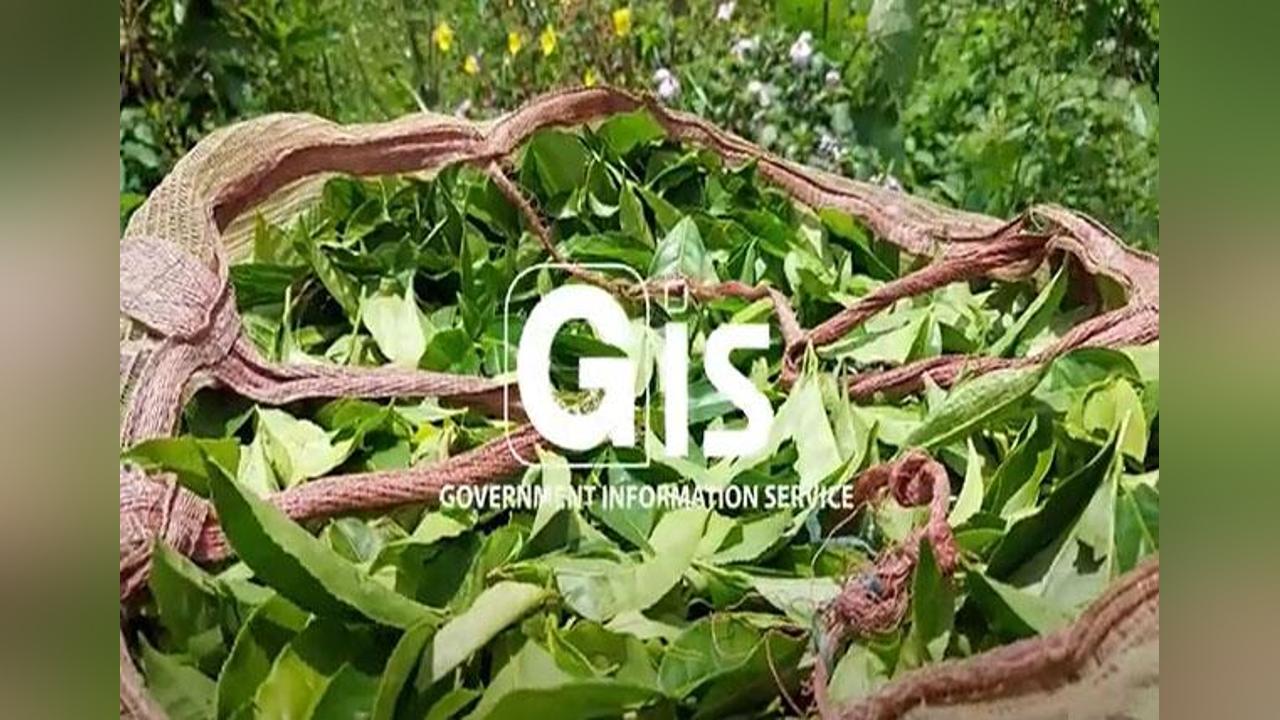Africa-Press – Mauritius. In its bid to turn the tea industry into a sustainable economic sector, Government has, since 2015 been implementing several important measures, namely to boost tea production and assist existing tea planters to consolidate their plantation business as well as encourage youngsters to join the sector.
As per the Strategic Plan 2016-2020, the Ministry of Agro-Industry and Food Security resolved to revitalise and accelerate the re-emergence the tea sector as tea has been identified as a priority crop which could contribute immensely as a pillar of the Mauritian economy.
The Mauritian tea sector has witnessed a see-saw evolution with a drastic development in the 90s where tea plantation was replaced by sugar cane plantation.
The data below obtained from Statistics Mauritius shows the area in Hectares under Tea Cultivation for the period 2015 to 2021. Measures to revitalise the tea sector Budget 2022/2023 measures implemented to boost the tea sector and help tea planters include:
increase of the Winter allowance, an allowance given as financial compensation for loss of earning during winter periods to help tea cultivators has been increased to Rs 2.00 per kg;
the release of agricultural State lands to be used as tea plantations; establishment of a tea nursery at la Brasserie for production of tea plantlets; extension of financial and non-financial support to tea cultivators; a one-off grant payment for the purchase of equipment for tea harvesters;
the provision of Rs 6 million to rehabilitate roads and build appropriate drainage systems in tea plantations at Nouvelle France, Grand Bois and Bois Cheri; and
10 000 tea plantlets at a subsidised cost of Rs 10 per unit, which was then reviewed to be given free of charge to tea planters.
Furthermore, the Ministry of Agro-Industry and Food Security also requested the Food and Agricultural Organization (FAO) to undertake a study to identify the drivers which led the tea industry into decline and what dynamic transformative actions are needed to reverse this trend.
The FAO Report will thus help the Ministry with its objective of increasing the production and quality of the Mauritian tea, carving a niche market for the Mauritian tea in the competitive global tea market and, obtaining higher prices on the global market.
The main findings of the study include the need to strengthen institutional, legislative and regulatory frameworks as well as develop a climate change adaptation plan and strategy; shortage of labour and ageing tea growers; absence of tea standards and product innovation, old infrastructure, high cost of processing and high dependence on electricity and fossil fuel; low technological adaptation; and the necessity to build a strong tea branding based on the island natural capital.
Small Farmers’ Welfare Fund The Small Farmers Welfare Fund (SFWF), under the aegis of the Ministry of Agro-Industry and Food Security, aims to promote the economic and social welfare of small farmers and their families. Some of the major welfare schemes extended by the SFWF to small tea planters include:
Tea Sector Support Scheme (TSSS): The TSSS was introduced in Budget 2016-2017 to provide fertilizers, namely, Nitrogen (N), Phosphorus (P) and Potassium (K) (NPK) in September and Calcium Ammonium Nitrate (CAN) in January, free of charge to small tea planters.
Necessary funding was provided in subsequent budgets to further finance the Scheme. Fertilizers are provided free of charge to small registered tea planters, free planters, planters who are members of co-operatives and metayers to assist them in fertilizing their fields hence increasing their field productivity.
NPK Fertilizer (22 :7 :7) and CAN fertiliser to the tune of 175 kgs/arpent and 100 kgs/arpent are provided respectively to some 1 100 small registered tea planters every year.
Planters’ Protection Scheme: The SFWF was operating a Crop Loss Compensation Scheme which was reviewed in Budget 2022/23 and extended for the first time to tea planters who shall after subscription to the Scheme also be eligible for the financial support of Rs 6 000/arpent in the event their tea plantations would be damaged by natural calamities such as drought, cyclones and/or excessive rainfall so as to provide a safety net to small planters against crop losses.
Mini Tea Harvester Scheme (MTHS): Funding to the tune of Rs 5 million was provided in Budget 2021-2022 to finance the MTHS whereby grant to the tune of Rs 10 000 is provided to each planter to acquire a Mini Tea Harvester (MTH).
The primary aim is to help small tea growers and provide them affordable solutions to shift to capital intensive production systems so as to address major constraints like scarcity of labour, enabling them to effectively continue on with the harvesting of tea leaves and increasing their productivity.
While the average quantum of leaves harvested through manual plucking stands at 40 kgs per 5 hrs and 60 kgs per 5 hrs for plucking with manual scissors, 200 kgs of tea leaves can be harvested from the MTH for 5 hours of work per day.
The SFWF also ensures that necessary training is provided to tea growers acquiring the MTH so as they use the equipment safely and avoid health hazards and are well acquainted with the maintenance of the MTH. To date, 56 Mini Tea Harvesters have already been delivered and 79 apparatus is expected to be delivered in January 2023.
Road Mending Scheme: Funding to the tune of Rs 6 million was earmarked in the Budget 2022-2023 to rehabilitate roads and build appropriate drainage systems in tea plantations at Nouvelle France, Grand Bois and Bois Cheri.
Following a survey conducted by the Engineering Division of the Ministry of Agro Industry and Food Security and report submitted thereon, the SFWF is actually working in the implementation modalities of the Scheme.
Farmers’ Protection Scheme (FPS): This Scheme will be operational as from January 2023 and will provide a safety net to small tea planters and financial support to the tune of Rs 6 000/arpent in the event their tea plantations would be damaged by natural calamities (drought, cyclones and or excessive rainfall).
For More News And Analysis About Mauritius Follow Africa-Press







